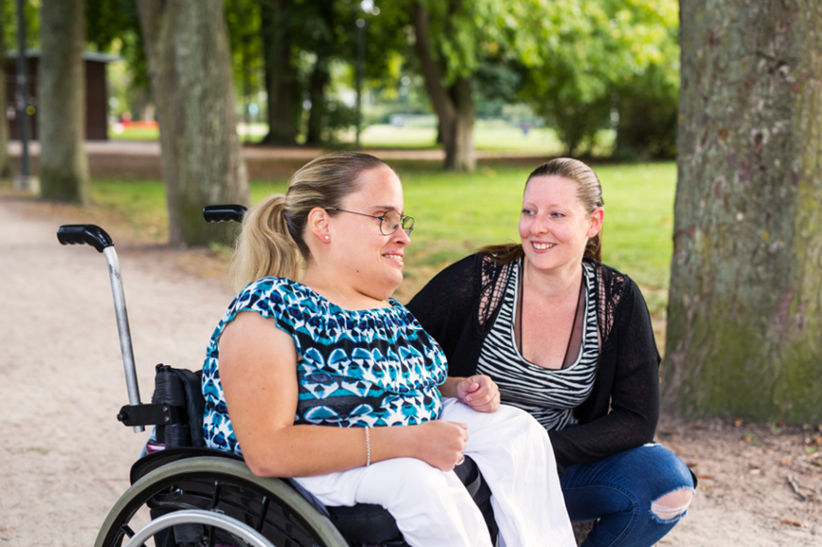In Australia, the NDIS (National Disability Insurance Scheme) plays a crucial role in enhancing the lives of individuals with disabilities. Better Care Disability Support Services is dedicated to providing comprehensive and personalised support services that caters to the unique needs of NDIS participants. This article explores the range of services available, their benefits, and how they can enhance the quality of life for those requiring assistance.
What Are Better Care Disability Support Services?
Understanding Disability Support Services
Disability support services are designed to assist individuals with disabilities in managing their daily living needs and improving their quality of life. These services can include personal care, home care, and community participation, all aimed at fostering independence and dignity. Better Care Disability Support Services focuses on creating personalized support services tailored to the unique requirements of each participant. By understanding the specific needs of individuals with disabilities, these services ensure that care is not only effective but also compassionate, enabling NDIS participants to thrive in their communities.
These services encompass a wide range of support options, including complex care for those with higher needs, ensuring that every aspect of the participant’s life is addressed. With a focus on flexible care, support workers are trained to adapt to different situations, providing the necessary assistance that empowers individuals. This comprehensive approach allows for a more personalized experience, ensuring that participants receive the care they truly need to lead fulfilling lives.
Benefits of Better Care Disability Support
The benefits of Better Care Disability Support Services extend beyond just meeting basic needs; they enhance overall well-being and quality of life for individuals with disabilities. By focusing on personalized support services, participants receive targeted assistance that fosters independence and self-management. This type of care not only addresses physical needs but also promotes emotional and psychological health, helping individuals to feel valued and respected in their communities. Moreover, the involvement of trusted disability support providers ensures that care services are delivered with professionalism and empathy.
Additionally, Better Care Disability Support Services helps NDIS participants navigate their NDIS plans effectively, ensuring that they access the full range of support available to them. This kind of proactive assistance can lead to better outcomes in terms of personal growth and community engagement. By empowering individuals to take charge of their care, these services create a more inclusive environment where people with disabilities can thrive socially, physically, and emotionally.
How Do Support Services Enhance Quality of Life?
Support services play a pivotal role in enhancing the quality of life for individuals with disabilities. By providing tailored assistance that aligns with a participant’s NDIS plan, these services address various facets of daily living. This includes personal care, home care, and community participation, all contributing to a more enriched life. Better Care Disability Support Services not only helps individuals manage their daily tasks but also encourages them to engage in activities that promote social interaction and personal fulfillment.
Moreover, support services facilitate access to necessary resources and opportunities, enabling individuals with disabilities to participate in their communities actively. This engagement is crucial for fostering a sense of belonging and acceptance. Additionally, the personalized nature of these services allows for adjustments to be made as needs change, ensuring that the care provided remains relevant and effective over time. Consequently, the impact of better care disability support services is profound, leading to improved life satisfaction and well-being for NDIS participants.
How Does the NDIS Work for Disability Support?
Overview of the National Disability Insurance Scheme (NDIS)
The National Disability Insurance Scheme (NDIS) is a government-funded program designed to provide support and funding for Australians with disabilities. It enables individuals to access a variety of services tailored to their specific needs, ensuring that they receive the necessary support to live fulfilling lives. NDIS participants are allocated funds based on their unique circumstances, allowing them to choose from a wide range of support services that best suit their requirements. This flexibility is a cornerstone of the NDIS, providing participants with the autonomy to make informed decisions about their care and support.
Additionally, the NDIS promotes a holistic approach to disability support by prioritizing individual needs and goals. This framework encourages collaboration between participants and their chosen NDIS providers, ensuring that support is not only effective but also aligned with each person’s aspirations. The scheme is designed to adapt and evolve with participants, providing ongoing support as their needs change over time. Ultimately, the NDIS aims to empower individuals with disabilities, fostering independence and integration into the community.
How to Choose the Right NDIS Provider?
Selecting the right NDIS provider is crucial to ensuring that individuals receive the best possible care and support. It is essential to consider factors such as the provider’s experience, range of support services, and their understanding of complex care needs. A trusted disability support provider should be able to offer personalized support services that align with the participant’s NDIS plan. Researching and reading reviews of potential providers can also help in making an informed decision, as feedback from other NDIS participants can provide valuable insights into the quality of care offered.
Moreover, it is important to assess the provider’s ability to foster a collaborative relationship with the participant. This includes understanding the participant’s goals and actively involving them in the planning and delivery of their care. A good NDIS provider will prioritize open communication, ensuring that participants feel comfortable expressing their needs and preferences. By choosing a provider that aligns with their values and goals, individuals with disabilities can significantly enhance their overall experience within the NDIS framework.
Understanding Your NDIS Plan and Support Coordination
Understanding an NDIS plan is essential for participants to effectively navigate their available supports and services. An NDIS plan outlines the specific funding allocated for various support needs, including personal care, therapy, and community engagement. Support coordination plays a vital role in helping participants understand and implement their NDIS plans. A support coordinator assists individuals in connecting with the right service providers, ensuring that they access the full range of disability support services available to them.
Moreover, effective support coordination facilitates ongoing monitoring and adjustment of the NDIS plan as needs change. This adaptability is crucial for maintaining the relevance of the support provided, allowing individuals to thrive as their circumstances evolve. By working closely with support coordinators, NDIS participants can ensure that their care is tailored to their current situation, ultimately leading to better outcomes and a more fulfilling life. Understanding and utilizing the NDIS effectively empowers individuals with disabilities to take charge of their support services and enhance their overall quality of life.
What Types of Disability Support Services Are Available?
Range of Support Services Offered
Better Care Disability Support Services offers a comprehensive range of support services tailored to meet the diverse needs of individuals with disabilities. These services include personal care, daily living assistance, and community participation programs designed to enhance social engagement. By providing a wide range of support options, these services ensure that every participant can access the specific assistance they require. This approach not only fosters independence but also promotes a sense of belonging within the community.
Additionally, the availability of flexible care options allows NDIS participants to choose services that best align with their individual needs and preferences. Whether it’s assistance with daily activities, complex care for those with higher needs, or support in achieving personal goals, the variety of services ensures that all aspects of a participant’s life are considered. By offering a diverse array of support services, Disability Support Services aims to empower individuals with disabilities, enabling them to lead more fulfilling and independent lives.
Personalised Support Services for Individuals
Personalized support services are at the heart of Better Care Disability Support Services. Each participant has unique needs and goals, and these services are designed to cater specifically to those aspects. By conducting thorough assessments and consultations, support workers can create individualized care plans that address the specific challenges faced by individuals with disabilities. This tailored approach not only enhances the effectiveness of the support provided but also reinforces the participant’s sense of agency and empowerment.
Moreover, personalized support services promote a deeper understanding between the support worker and the participant, fostering a trusting and collaborative relationship. As support workers become familiar with the individual’s preferences and routines, they can offer assistance that is respectful and considerate of the participant’s lifestyle. This level of care leads to a more positive experience and encourages greater engagement in daily activities, ultimately contributing to a higher quality of life for those receiving support.
Community Participation and Engagement Opportunities
Community participation is an essential aspect of Better Care Disability Support Services, as it plays a crucial role in enhancing the lives of individuals with disabilities. Engaging in community activities enables participants to build social connections, develop new skills, and gain a sense of belonging. Better Care offers various programs and opportunities for community engagement, including recreational activities, volunteering, and social events, all designed to facilitate interaction and participation for NDIS participants.
Moreover, community participation fosters independence by allowing individuals with disabilities to actively contribute to their communities. This engagement not only enhances self-esteem and personal growth but also promotes a more inclusive society. By providing opportunities for meaningful participation, Better Care Disability Support Services helps individuals to break down barriers and challenge stereotypes associated with disability. As participants become more involved in their communities, they experience a greater sense of purpose and fulfillment in their lives.
How to Ensure Quality Care in Disability Support?
Importance of Registered NDIS Providers
Choosing a registered NDIS provider is essential for ensuring the quality of care received by individuals with disabilities. Registered providers must adhere to strict guidelines and standards set by the NDIS, ensuring that they deliver high-quality support services. This registration process involves comprehensive checks and ongoing monitoring to guarantee that providers meet the necessary requirements for delivering care and support. By selecting registered providers, NDIS participants can have confidence in the quality of services they receive, knowing that their care is managed by professionals committed to best practices.
Furthermore, registered NDIS providers often have access to additional resources, training, and support systems that enhance their ability to deliver effective care. This access ensures that support workers are well-equipped to address the diverse needs of individuals with disabilities. Additionally, registered providers are typically more experienced in navigating the NDIS framework, providing valuable guidance to participants as they manage their plans and access support services. Ultimately, choosing a registered NDIS provider is a critical step in ensuring that individuals receive the best possible care and support.
How to Evaluate the Quality of Care Services?
Evaluating the quality of care services is vital for individuals with disabilities and their families to ensure they receive the support they need. Key indicators of quality care include the qualifications of support workers, the range of services offered, and the responsiveness of providers to participant needs. Gathering feedback from current and former clients can provide valuable insights into the effectiveness and reliability of a provider’s services. Additionally, it is essential to assess how well the provider collaborates with participants to create personalized care plans that align with their goals and aspirations.
Moreover, evaluating the quality of care services involves observing the environment in which support is delivered. A positive and welcoming atmosphere can significantly impact the participant’s experience and overall well-being. Regular communication between participants and providers is also crucial in assessing service quality, as it allows for the identification of areas for improvement. By actively engaging in the evaluation process, individuals with disabilities can advocate for their needs and ensure they receive the highest quality of support services available.
Feedback and Improvement in Disability Support Services
Feedback is a critical component in the continuous improvement of disability support services. Providers that prioritize client input can better understand the effectiveness of their programs and identify areas for enhancement. Encouraging NDIS participants to share their experiences and suggestions leads to more personalized and responsive care services. This proactive approach fosters a culture of collaboration between participants and support workers, ensuring that services remain relevant and effective in meeting the evolving needs of individuals with disabilities.
Furthermore, implementing a structured feedback mechanism allows providers to systematically analyze input and make data-driven decisions regarding service improvements. Regular reviews and updates to care plans based on participant feedback can enhance overall satisfaction and outcomes. Consequently, the commitment to feedback and improvement not only elevates the standard of care but also empowers NDIS participants to take an active role in shaping their support services, leading to a more fulfilling experience overall.
What Is Supported Independent Living?
Understanding Supported Independent Living (SIL)
Supported Independent Living (SIL) is a specialized service designed to assist individuals with disabilities in living independently within their communities. SIL provides a supportive environment where participants can access personal care, daily living assistance, and social engagement opportunities while maintaining their autonomy. This type of support is essential for individuals with disabilities who desire to live independently but may require assistance with certain tasks or activities. Better Care Disability Support Services offers a range of SIL options tailored to meet the unique needs of each participant.
Moreover, SIL programs promote skill development, enabling individuals to enhance their capabilities and confidence in managing daily tasks. By fostering independence in a supportive setting, SIL empowers participants to take control of their lives and make decisions that align with their personal goals. The emphasis on community integration within SIL programs further enriches the participant’s experience, allowing them to build social connections and engage in meaningful activities that enhance their quality of life.
Benefits of SIL for People with Disabilities
The benefits of Supported Independent Living (SIL) for individuals with disabilities are manifold. One of the primary advantages is the opportunity for greater independence, as participants learn to manage their daily routines with the support of trained staff. This empowerment fosters self-confidence and enhances overall well-being. Additionally, SIL provides a structured environment where individuals can receive personalized support while still enjoying the freedom of living independently. This balance is crucial for personal growth and development.
Furthermore, SIL services facilitate participation in the community, allowing individuals with disabilities to engage in social activities, education, and employment opportunities. This involvement not only promotes a sense of belonging but also helps break down barriers associated with disability. By participating in community life, individuals can develop valuable life skills and build lasting relationships, ultimately leading to a more fulfilling and enriched life. The holistic approach of SIL ensures that participants receive comprehensive support tailored to their unique needs and aspirations.
How to Access Supported Independent Living Services?
Accessing Supported Independent Living (SIL) services involves a few key steps that ensure individuals with disabilities receive the right support tailored to their needs. The first step is to consult with a registered NDIS provider who specializes in SIL services. They can help assess the individual’s specific requirements and guide them through the NDIS application process. This includes understanding the funding available for SIL and how it can be incorporated into the participant’s NDIS plan.
Additionally, once the NDIS plan is in place, participants can begin exploring available SIL options and choose a provider that aligns with their goals and preferences. Engaging in open communication with providers is essential, as it allows individuals to express their needs and expectations, ensuring that the support provided is personalized and effective. By taking these proactive steps, individuals with disabilities can successfully access SIL services that empower them to live independently and thrive within their communities.
How to Create a Care Plan with Disability Support Services?
Steps to Individualise Your Care Plan
Creating a personalized care plan with disability support services is essential for ensuring that individuals with disabilities receive tailored support that meets their specific needs. The first step in this process is to conduct a thorough assessment of the individual’s requirements, preferences, and goals. This assessment should involve discussions with the participant, their family, and support workers to gather comprehensive information. Based on this evaluation, a detailed care plan can be developed that outlines the specific services and support needed to achieve the participant’s objectives.
Furthermore, it is important to regularly review and update the care plan to reflect any changes in the individual’s needs or circumstances. This ongoing collaboration between the participant and their support team ensures that the care provided remains relevant and effective over time. A well-structured care plan not only enhances the quality of support received but also empowers individuals to take an active role in managing their care. By personalizing the care plan, Better Care Disability Support Services can ensure that participants receive the support necessary for a fulfilling life.
Collaborating with Support Workers for Better Care
Collaboration with support workers is a vital aspect of creating and implementing an effective care plan for individuals with disabilities. Support workers play a crucial role in delivering personalized care and assistance, and their insights can significantly enhance the care planning process. By fostering open communication between participants and support workers, Better Care Disability Support Services can create a collaborative environment that encourages feedback and shared decision-making. This partnership ensures that the care provided aligns with the participant’s goals and preferences.
Additionally, support workers can offer valuable input regarding the individual’s strengths, challenges, and progress, helping to fine-tune the care plan as needed. Regular meetings and check-ins between participants and support workers facilitate ongoing collaboration and ensure that the care plan remains dynamic and responsive to changing needs. By working together, individuals with disabilities and their support workers can create a comprehensive care plan that promotes independence and enhances overall well-being.
Adjusting Your Care Plan as Needs Change
Adjusting a care plan as needs change is a crucial aspect of providing effective disability support. Individuals with disabilities may experience fluctuations in their circumstances, requiring modifications to their care plans to ensure continued relevance and effectiveness. Regular reviews of the care plan, in collaboration with support workers and the individual, are essential to identify any necessary adjustments. This proactive approach allows for timely responses to changing needs, ensuring that participants receive the appropriate support at all times.
Moreover, the ability to adapt the care plan fosters a sense of empowerment for individuals with disabilities. By encouraging participants to actively engage in discussions about their care, Better Care Disability Support Services promotes self-advocacy and decision-making. This dynamic process not only enhances the quality of care received but also strengthens the participant’s confidence and sense of agency. Ultimately, the flexibility in adjusting care plans is fundamental to delivering high-quality support that meets the evolving needs of individuals with disabilities.






